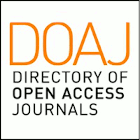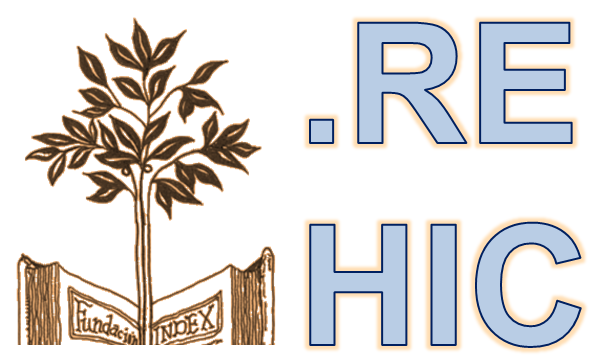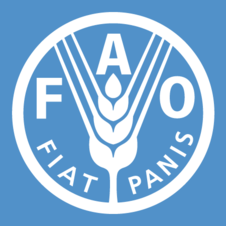Healthy eating index, water intake and sleep quality in high performance athletes from a public university
DOI:
https://doi.org/10.29105/respyn20.4-3Keywords:
Key words: athletes, healthy eating, water intake, sleep qualityAbstract
Introduction. Athletes should have a healthy eating, adequate water intake and good sleep quality to improve their physical performance.
Objective: To establish the index of healthy eating, water intake and sleep quality in athletes.
Material and methods: Cross-sectional design, N= 769 athletes participated. After informed consent, an online survey was applied. It contained sociodemographic variables, type of sport and healthy habits in the last month. The Healthy Eating Index, water intake in 24 hrs and sleep quality were determined.
Statistical analysis: averages, standard deviation, frequencies and percentages were applied.
Results. 57.7% were women, age 19.8±2.6 years. Ball sports were predominant. 25% showed a healthy eating; water consumption of 1825 ± .828 milliliters in 24 hrs; 48% of women and 36.8% of men had adequate water intake. The 24.4% presented good sleep quality.
Conclusions: the prevalence of healthy eating, adequate water intake and good sleep quality is low. It is important to design strategies to improve these habits and optimize physical performance, quality of life and health.
Downloads
References
American Dietetic Association. (2009). Position of the American Dietetic Association, Dietitians of Canada, and the American College of Sports Medicine: Nutrition and Athletic Performance. Journal of the American Dietetic Association, 109,(3) ,509-27. DOI: 10.1249/MSS.0b013e31890eb86 DOI: https://doi.org/10.1016/j.jada.2009.01.005
Barbero, J., Castagna, C. & Granda, J. (2006). Deshidratación y reposición hídrica en jugadores de fútbol sala: efectos de un programa de intervención sobre la pérdida de líquidos durante la competición. Motricidad. European Journal of Human Movement, 17,93-106. Disponible en: https://www.redalyc.org/pdf/2742/274220442007.pdf
Belval, L., Hosokawa Y., Casa, D., Adams, W., Armstrong, L., Baker, L., Burke, L., Cheuvront, S., Chiampas, G., González-Alonso, J., Huggins, R., Kavouras, S., Lee, E., McDermott, B., Miller, K., Schlader, Z., Sims, S., Stearns, R., Troyanos, C and Wingo, J. (2019). Nutrients,11,(7), 2-15. DOI: 10.3390/nu11071550 DOI: https://doi.org/10.3390/nu11071550
Berti-Zanella, P., Maciel-August, P., Donner-Alves, F., Matte, C. & Guerini de Souza, C. (2018). Association of healthy eating index and oxidative stress in adolescent volleyball athletes and non-athletes. Nutrition,60, 230-234 DOI:10.1016/j.nut.2018.10.017 DOI: https://doi.org/10.1016/j.nut.2018.10.017
Buysse, DJ., Reynolds, CF., Monk, TH., Berman, SR. & Kupfer, DJ. (1989). The Pittsburgh Sleep Quality Index: a new Instrument for psychiatric practice and research. Psychiatric Research ,28,193-213. DOI: 10.1016/0165-1781(89)90047-4 DOI: https://doi.org/10.1016/0165-1781(89)90047-4
Duarte, E. & Anderson, G. (2013). Programa de autocuidado para el mejoramiento de la calidad de vida de atletas universitarios. Revista de Enfermería Actual de Costa Rica, 25,1‐13. DOI: 10.15517/revenf. v0i25.11838
Gupta, L., Morgan, K. & Gilchrist S. (2017). Does Elite Sport Degrade Sleep Quality? A Systematic Review. Sports Medicine, 47,1317–1333. DOI: 10.1007/s40279-016-0650-6 DOI: https://doi.org/10.1007/s40279-016-0650-6
Iglesias, R., Villarino, A., Martínez, J., Martínez, J., Cabrerizo, L., Gargallo, M., Lorenzo, H., Quiles, J., Planas, M., Polanco, I., Romero de Ávila, D., Russolillo, J., Farré, R., Moreno, J., Riobó, P., Salvadó, S. (2011). Importancia del agua en la hidratación de la población española: documento FESNAD 2010. Nutrición Hospitalaria, 26, (1), 27-36. DOI:10.3305/nh.2011.26.1.5167
Kölling, S., Duffield, R., Erlacher, D., Venter, R. & Halson, S. (2019). Sleep-Related Issues for Recovery and Performance in Athletes. International Journal of Sports Physiology and Performance, 14, (2),144-148. DOI: 10.1123/ijspp.2017-0746 DOI: https://doi.org/10.1123/ijspp.2017-0746
Kotarska, K., Nowak, L., Szark-Eckardt, M., & Nowak, M. A. (2019). Intensity of Health Behaviors in People Who Practice Combat Sports and Martial Arts. International Journal Environmental Research and Public Health, 16,(14), 2463. DOI:10.3390/ijerph16142463 DOI: https://doi.org/10.3390/ijerph16142463
Krebs, S., Pannucci, T., Subar, A., Kirkpatrick, S., Lerman, J., Tooze, J., Willson, M. and Reeder, J. (2018). Update of the Healthy Eating Index: HEI-2015. Journal of the Academy of Nutrition and Dietetics, 118, (9),1591-1602. DOI: 10.1016/j.jand.2018.05.021 DOI: https://doi.org/10.1016/j.jand.2018.05.021
Leduc, C., Tee, J., Weakley, J., Ramírez, C. & Jones B. (2019). The Quality, Quantity, and Intraindividual Variability of Sleep Among Students and Student-Athletes. Salud Deportiva, 12,(1), 43-50. DOI:10.1177/1941738119887966 DOI: https://doi.org/10.1177/1941738119887966
Lloret, M. (1989). El entrenamiento invisible. Apunts. Educación física y deportes, 1, (15), 10-14. Disponible en: https://raco.cat/index.php/ApuntsEFD/article/view/382890
Mata-Ordoñez, F., Carrera-Bastos, P., Domínguez, R. & Sánchez-Oliver, A.J. (2018). Importancia del sueño en el rendimiento y la salud del deportista. Revista de Educación, Motricidad e Investigación, 11,70-82. Disponible en: http://rabida.uhu.es/dspace/bitstream/handle/10272/15796/Importancia.pdf?sequence=2 DOI: https://doi.org/10.33776/remo.v0i11.3437
Mancine, R., Kennedy, S., Stephan, P. & Ley A. (2020). Disordered Eating and Eating Disorders in Adolescent Athletes. Spartan Medical Research Journal, 4 (2), 1-5. DOI: 10.51894/001c.11595 DOI: https://doi.org/10.51894/001c.11595
Massarani, F., Citelli, M., Canella DS. & Koury, J. (2019). Healthy eating promoting in a Brazilian sports-oriented school: a pilot study. Journal of Life and Environmental Sciences, 7,(7), 1-13. DOI: 10.7717/peerj.7601 DOI: https://doi.org/10.7717/peerj.7601
Norte A, Ortiz R. (2011). Calidad de la dieta española según el índice de alimentación saludable. Nutrición Hospitalaria, 26, 2, 330-336. DOI:10.3305/nh.2011.26.2.4630
Observatorio de Hidratación y Salud . (2007). Guía de hidratación y salud. Disponible en: http://profesionales.farmaceuticosdesevilla.es/opencms/export/sites/default/Proyecto/proyecto/RICOFS/Vocalia_Alimentacion/Guxa_Hidratacion_y_Salud_OK1.pdf
Olzinski, S., Beaumont, J., Toledo, M., Yudell, A., Johnston, C. & Wardenaar, F. (2019). Hydration Status and Fluid Needs of Division I Female Collegiate Athletes Exercising Indoors and Outdoors. Sports, 7, (155),1-14. DOI: 10.3390/sports7070155 DOI: https://doi.org/10.3390/sports7070155
Parrón, E., Nestares, T. & De Teresa, C. (2015). Valoración de los hábitos de vida saludables en jugadores de pádel. Annals of Sports Medicine, 8, (4), 184–189. DOI: 10.1016/j.ramd.2015.08.002 DOI: https://doi.org/10.1016/j.ramd.2015.08.002
Pelly, F. & Thurecht, R. (2019). Evaluation of Athletes’ Food Choices during Competition with Use of Digital Images. Nutrients, 11, (7), 1-15. DOI: 10.3390/nu11071627 DOI: https://doi.org/10.3390/nu11071627
Poussel, M., Laure, P., Genest, J., Fronzaroli, E., Renaud, P., Favre, A., Chenuel, B. (2014). Sleep and academic performance in young elite athletes. Archives of Pediatrics, 21,(7),722‐726. DOI: 10.1016/j.arcped.2014.04.016 DOI: https://doi.org/10.1016/j.arcped.2014.04.016
Taylor, L., Chrismas, B., Dascombe, B., Chamari, K. & Fowler, P. (2016). Sleep Medication and Athletic Performance-The Evidence for Practitioners and Future Research Directions. Frontiers in Physiology, 7, 83,1-5. DOI: 10.3389/fphys.2016.00083 DOI: https://doi.org/10.3389/fphys.2016.00083
Trakman, G., Forsyth, A., Hoye, R. & Belski, R. (2019). Australian team sports athletes prefer dietitians, the internet and nutritionists for sports nutrition information. Nutrition & Dietetics, 76, 4, 369-372. DOI: 10.1111/1747-0080.12569 DOI: https://doi.org/10.1111/1747-0080.12569
Urdampilleta, A., Martínez, J., Julia, S. & Álvarez, J. (2013). Protocolo de hidratación antes, durante y después de la actividad físico-deportiva. Motricidad. European Journal of Human Movement, 31, 57-76. Disponible en: https://www.redalyc.org/pdf/2742/274229586004.pdf
Downloads
Published
How to Cite
Issue
Section
License
Copyright (c) 2021 Georgina Mayela Núñez Rocha, Rocío Martínez - Hernández, Mayra Cañamar-Ramírez, María Natividad Ávila-Ortiz , José Alberto Pérez García, Milton Carlos Guevara-Valtier, Karina Janett Hernández Ruiz

This work is licensed under a Creative Commons Attribution 4.0 International License.
The rights of the work belong to the author or authors, however, by sending it for publication in the Public Health and Nutrition Magazine of the Faculty of Public Health and Nutrition of the Autonomous University of Nuevo León, they grant the right for its first publication in between electronic, and possibly, in print to the Public Health and Nutrition Magazine. The license used is the Creative Commons attribution, which allows third parties to use what is published whenever the authorship of the work is mentioned and the first publication that is in the Public Health and Nutrition Magazine. Likewise, the author or authors will take into account that it will not be allowed to send the publication to any other journal, regardless of the format. The authors will be able to make other independent and additional contractual agreements for the non-exclusive distribution of the version of the article published in the Public Health and Nutrition Magazine (e.g., institutional repository or publication in a book) provided they clearly state that The work was published for the first time in the Public Health Magazine, Magazine of the Faculty of Public Health and Nutrition of the Autonomous University of Nuevo León.














